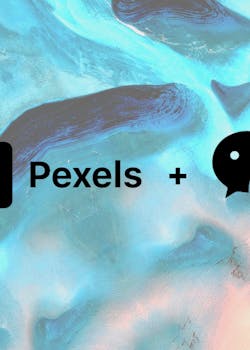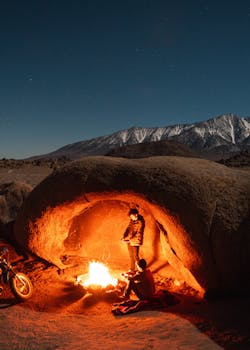
How Stock Photography Can Help Increase Mental Health Awareness
For this year's World Mental Health Awareness Day, October 10th, we teamed up with advocacy group Mental Health America to work towards a better, more realistic depiction of mental health in stock photography. Here's why it matters.
Mental health is a tricky topic to show accurately in stock photos. Mental health looks and feels like very different things to different people — and the standard imagery surrounding mental health tends to be, well, pretty depressing.
Building an incredible free-to-use stock library that promotes positive change is our number one goal at Pexels. So when Mental Health America got in touch with us to talk about better representation of mental health on Pexels, we were excited to help improve our search results.
First, our curators refined the results around the search keyword "mental health" to provide a better, more realistic selection of photos and videos. (Check it out here!)

Photo by RDNE Stock project · View Photo
When we talk about staying healthy, we tend to focus on positives like eating well and staying active — not just avoiding getting sick. As the oldest mental health advocacy organization in the United States, Mental Health America aims to encourage more people to approach mental health the same way.
Mental health is something that everyone should be aware of in a proactive way, beyond focusing only on illness and crisis moments. Practicing mindfulness, creating a strong community, and learning strategies to cope with tough times are all positive actions that can and should be part of the larger conversation around mental health.
This is what MHA is working towards. Founded in 1909, they strive to promote mental health as an important part of overall wellness, through advocacy, research, education, and programs aiming at promoting mental health awareness and directly helping people on a community level, all across the US.

Photo by Mental Health America (MHA) · View Photo

Photo by RDNE Stock project · View Photo
We talked to Jennifer Cheang, director of digital marketing at MHA, to get more perspective on why stock photography can help raise awareness about mental health.
We also connected with LA-based studio RODNAE Productions for a Pexels shoot themed around realistic, diverse mental health imagery — find some of our favorite photos below (free to use, of course, as always!).
Pexels: What does better mental health awareness and representation look like to you at MHA? Why is this so important?
Jennifer: It's important that people understand what mental illness is, what mental health is, and how important it is to take care of your mental and emotional wellbeing just like your physical wellbeing.
The more people are aware of these issues, the earlier we can identify and intervene before a mental health concern develops into something more serious.
Additionally, representation is mental health. Being able to see someone like yourself thriving despite what mental health challenges they may have can boost one's self-esteem and contribute to overall recovery.

Photo by RDNE Stock project · View Photo
What challenges have you faced in finding realistic stock photos representing mental health?
When you search for terms like "mental health" or "mental illness," you're mostly going to find pictures of distressed people. While coping with mental health struggles can be difficult, it's also important to remember that people with mental health struggles, mental illness, etc. are just regular people.
Depression doesn't "look" a certain way, and someone who is depressed isn't going to be sad all the time. For some, depression looks more like chronic exhaustion or anger.
The biggest challenge becomes finding an appropriate way to represent or depict mental health conditions without perpetuating harmful stereotypes about what that looks like, because if people only see a condition in a certain way (depression = sad, or ADHD = some overexcited child), they may have a difficult time recognizing it in themselves if they do not identify with those depictions.

Photo by Mental Health America (MHA) · View Photo

Photo by RDNE Stock project · View Photo
How do you think stock photography can help improve mental health awareness?
People with mental illnesses are judged by their worst moments. The long fight is what we all need to see about this whole story of what it means to struggle with a mental health problem and recover from it.
Since stock photography is so commonly used across many organizations, industries, and companies, I hope that by showing a more whole picture of what the mental health journey looks like, they can help increase awareness and normalize conversations around mental health and mental illness.
Learn more about Mental Health America's work here.

Photo by RDNE Stock project · View Photo

Photo by Mental Health America (MHA) · View Photo

Photo by RDNE Stock project · View Photo
Pexels is a platform for high quality stock photos you can use for free.
Browse free photos










